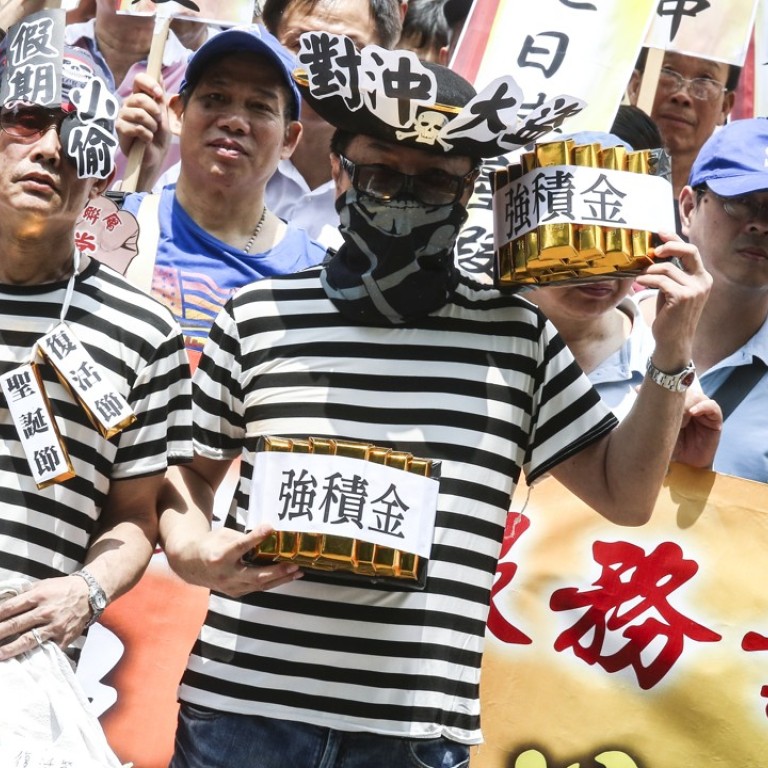
Tax incentives for Hong Kong SMEs will only create more jobs for government paper shufflers
Small and medium-sized enterprises in Hong Kong can look forward to more tax incentives as the government tries to counter competition from regional rivals offering lower rates
City, August 7
I have never understood why government should favour small and medium enterprises except as a populist measure. In business terms this question of big or small is a matter of horses for courses.
Try, for instance, to conceive of an SME airline, a company with, let’s say, only 30 employees and a capital of a million dollars at best. It perhaps works for operating bush planes in the Alaska wilderness but even there such enterprises rise and fall more often than the salmon runs.
Can you really imagine such an airline operating an international air travel business out of Hong Kong’s airport?
Or imagine an SME bank. They used to have them in the United States, one town single-branch banks that advanced local savings to local farmers. Then farming suffered a downturn in the Great Depression and most of these banks went bust. It’s just not a good idea. Banks are best a bit bigger.
On the other hand, try to image a big international conglomerate specialising in domestic plumbing repairs. You can drop the “M” of SME for the best size in this sort of company. It’s a field for small enterprises alone.
Sometimes big is best and sometimes small is best. There is no reason why small and medium should be thought morally better or more efficient outside of the fields to which they are best suited.
Strangely, however, it is not really true that government favours small and medium enterprises despite all the public statements of commitment to them.
The sorry fact is that bureaucrats always find it easier to deal with big companies. The more regulation that the bureaucracy imposes the more that small and medium enterprises find themselves disadvantaged.
Hong Kong’s Mandatory Provident Fund (MPF), for example, is a big administrative headache for small companies that cannot afford dedicated accounting and human resource departments to deal with it.
Small companies routinely ran afoul of MPF requirements and are then lumbered with big fines and additional mountains of paperwork. Big companies don’t have this problem.
It is not really true that government favours small and medium enterprises despite all the public statements of commitment to them
Corporations face a growing number of such MPF-style headaches as modern regulatory culture increasingly takes hold of corporate life. They all contribute to making things more difficult for entrepreneurs at the most crucial period for business development. What government praises it equally undermines.
I expect that this latest [Hong Kong chief executive] Carrie Lam idea of dropping corporate profits tax to 10 per cent on the first HK$2 million of corporate profits will do little more than create further administrative tangles. Corporate income tax, after all, is the mainstay of the Lawyers and Accountants Employment Enhancement Act.
In this case I imagine many people with a decent annual income but one of less than HK$2 million will look for new ways of incorporating themselves. It will not make SMEs more innovative or significantly improve their capital base.
In any case the best fiscal policy for any government has always been to treat taxes as a way of raising needed revenues rather than of monkeying with social structure. If SMEs must be favoured then let us do it as a form of social assistance and not through the financial secretary’s office.
A further fallacy mentioned in our report on this scheme is that it would encourage job creation.
Let us have it straight that jobs are created when ordinary people spend or invest money. If government takes money from you to encourage job creation it only reduces the spending power and job creation ability that you have.
In this case government takes less from one revenue source, which means it must take more from another. One minus one equals zero except that in this case you still have to deduct the cost of administering the scheme from the equation. The net job creation effect is thus less than zero.
Ah yes, I forgot. It creates paper shuffling jobs in that big glass box on the other side of the Admiralty MTR station.
But, folks, if the game is to counter competition from regional rivals, we haven’t a hope of outdoing Singapore on who is more enmeshed in bureaucracy. Let’s just give it up.

